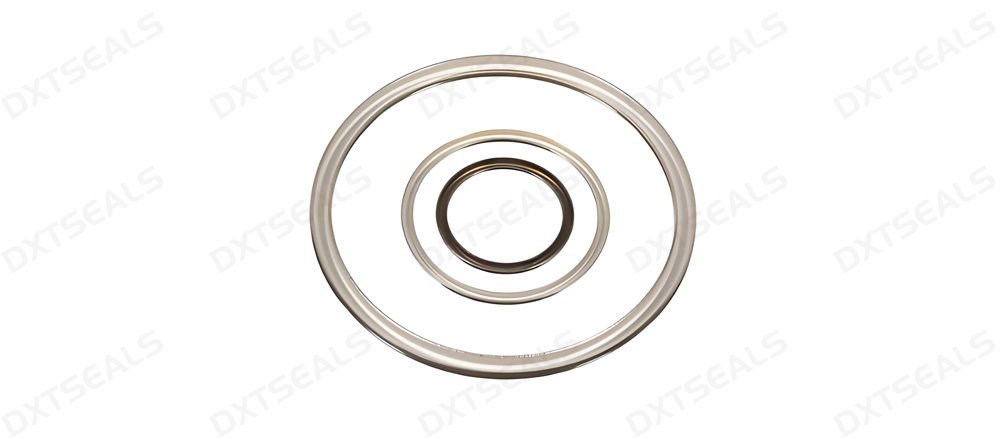
When it comes to extreme environments where temperature fluctuations can range from cryogenic lows to high-temperature conditions, metal seals are a critical component in ensuring safety, efficiency, and performance. Whether it’s in aerospace, energy, or industrial machinery, metal seals offer unmatched durability and resilience in environments where rubber or other materials would fail.
This article will delve into the advantages of metal seals, their role in cryogenic and high-temperature applications, and why they are the ideal choice for these demanding environments.
1. The Role of Metal Seals in Extreme Conditions
Metal seals are specifically designed to perform in environments where other sealing materials may degrade or lose their effectiveness. Unlike traditional rubber seals, metal seals maintain their integrity in extreme conditions, from the sub-zero temperatures of space to the high-heat environments of engines and industrial reactors. Their ability to withstand these extremes makes them indispensable in industries that deal with critical operations, such as aerospace, oil and gas, chemical processing, and power generation.
2. Key Benefits of Metal Seals for Cryogenic and High-Temperature Uses
a. Superior Temperature Resistance
One of the primary reasons metal seals are favored in cryogenic and high-temperature environments is their exceptional ability to handle temperature extremes. Unlike rubber, which can become brittle at low temperatures or degrade at high temperatures, metal seals retain their sealing properties under a broad temperature range:
-
Cryogenic Temperatures: Metal seals are ideal for cryogenic environments, where temperatures can drop to as low as -253°C (-423°F). In such conditions, materials like rubber would lose their flexibility and sealing ability, but metals like stainless steel and Inconel maintain their integrity.
-
High-Temperature Performance: Metal seals also excel in high-temperature environments, capable of withstanding temperatures exceeding 1000°C (1832°F) without significant degradation. They are essential in applications such as gas turbines, jet engines, and nuclear reactors.
b. Long-Lasting Durability
The inherent strength of metals allows for seals that last much longer than traditional sealing materials. Metal seals are resistant to wear, corrosion, and deformation, providing a long service life even in the most demanding conditions. Their ability to handle high pressures and aggressive chemicals further extends their durability, ensuring that equipment runs efficiently with minimal maintenance.
c. Excellent Sealing Performance
Metal seals provide a reliable seal in extreme environments due to their ability to form a solid and tight connection between surfaces. This ensures that there is no leakage of gases, liquids, or other substances, which is especially critical in cryogenic tanks, gas pipelines, and high-pressure vessels.
d. Flexibility in Design
Metal seals are highly customizable and can be engineered to meet the specific requirements of a wide range of applications. Whether it’s for flanged connections, valves, or pipe fittings, metal seals can be manufactured to suit different shapes, sizes, and material needs, making them versatile for use in various industries.
3. Applications of Metal Seals in Cryogenic and High-Temperature Industries
a. Aerospace
In the aerospace industry, components must withstand the harshest conditions, from the cold vacuum of space to the intense heat experienced during re-entry. Metal seals are crucial for maintaining airtight seals in fuel tanks, engines, and pressure vessels used in rockets and spacecraft. Their ability to function at both cryogenic and high-temperature extremes is what makes them indispensable in space exploration and satellite technology.
b. Oil and Gas
The oil and gas industry often deals with high-pressure systems that operate in deep-sea environments, offshore rigs, and refineries, where both cryogenic and high-temperature conditions are common. Metal seals are used in critical applications such as subsea pipelines, gas compressors, and exploration drilling rigs, where their reliability is essential for the safe and efficient operation of equipment.
c. Power Generation
In power plants, particularly those involved in nuclear energy and thermal power generation, metal seals are used to ensure the integrity of reactors and other high-pressure systems. These seals are exposed to both extreme heat and intense pressure, requiring materials that can handle such harsh conditions without failing.
d. Chemical and Petrochemical Processing
Chemical reactors and high-pressure systems in petrochemical plants often require seals that can withstand a combination of extreme temperatures and reactive chemicals. Metal seals are ideal for these applications due to their resistance to chemical degradation and their ability to maintain a strong seal even in the most aggressive environments.
4. Materials Used in Metal Seals for Extreme Conditions
To meet the demands of cryogenic and high-temperature applications, metal seals are often made from specialized materials such as:
- Stainless Steel: Known for its excellent corrosion resistance and high-temperature strength, stainless steel is commonly used in a variety of sealing applications.
- Inconel: This high-performance nickel-chromium alloy is used in applications that require resistance to extreme temperatures and corrosive environments, particularly in the aerospace and energy sectors.
- Monel: A nickel-copper alloy that is particularly effective for chemical resistance in extreme environments.
- Titanium: Lightweight and corrosion-resistant, titanium is often used in aerospace and chemical processing applications where weight and strength are critical factors.
5. Conclusion
When it comes to cryogenic and high-temperature applications, metal seals offer unparalleled performance, durability, and reliability. Their ability to function effectively in extreme conditions makes them the go-to choice for industries such as aerospace, oil and gas, power generation, and chemical processing.
By selecting the right type of metal seal, businesses can ensure that their equipment operates smoothly, safely, and efficiently, even in the harshest environments. With their long service life and superior sealing capabilities, metal seals are indeed an indispensable component in the most demanding industries.
